Suffering from a dwindling population, Tsuruoka City in northeastern Japan has now paved the way for the revitalization of the region through the power of bio-ventures
Facing the Sea of Japan, Tsuruoka City in Yamagata Prefecture lies in the Tohoku region of northern Honshu. The fertile land here, surrounded by mountains on one side and the ocean on the other, produces a treasure trove of culinary ingredients, such as rice. No wonder, then, that this beautiful municipality is the only place in Japan to have been registered as a UNESCO Creative City of Gastronomy. However, it has also grappled in recent times with a significant outflow of people leaving for bigger cities, a situation that has created an urgent need to reinvigorate the local economy. With that in mind, Tsuruoka City set about building a sustainable place to live by taking a long-term approach and investing heavily in academic fields. Based on the idea of sprouting new industries from the city, as well as fostering talent in future generations, it started building the Tsuruoka Science Park back in 1999 as a hub for enterprises and research institutions.
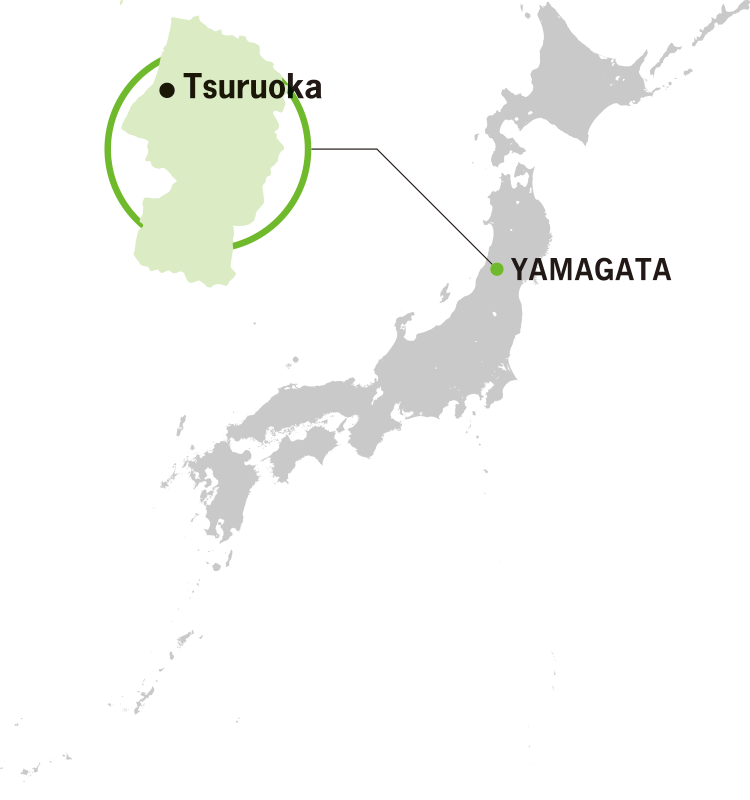
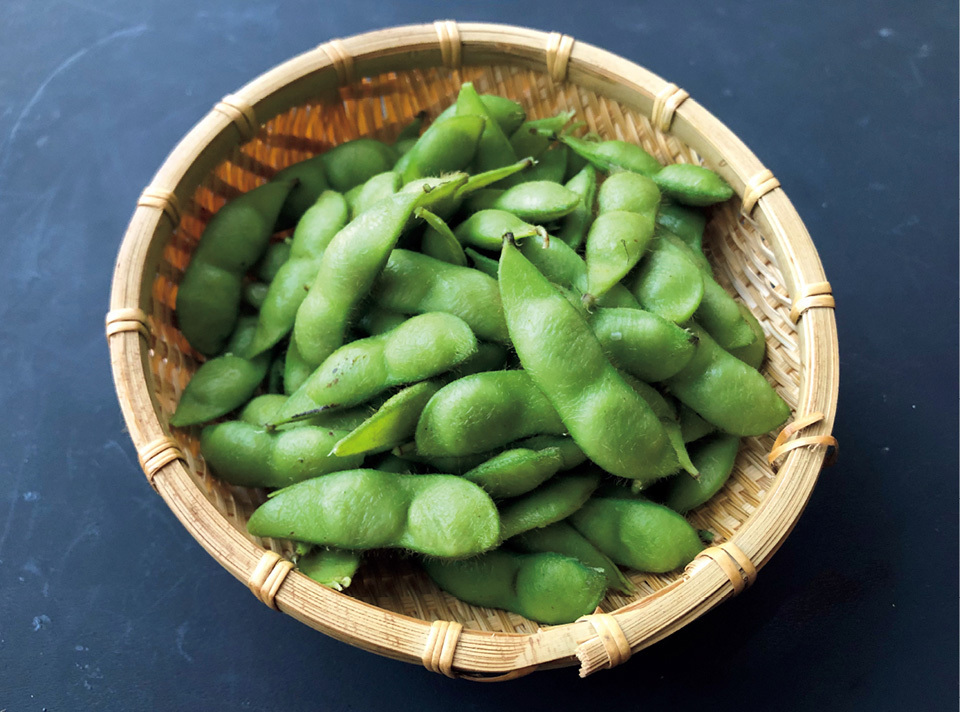
“All the food in Tsuruoka is delicious,” opine many of the researchers at the Science Park. Especially famous nationwide is dadacha-mame, a species of soybean grown only in Tsuruoka City.
One of the earliest organizations attracted to the Science Park was the Institute for Advanced Biosciences (IAB), established by Keio University, which, since its foundation in 1858 in Tokyo, has been one of the most prestigious universities in Japan. The research institute takes advantage of cutting-edge biotechnologies to comprehensively measure and analyze biological data, performing pioneering research on new life sciences driven by big data. In particular, IAB is the home of the world’s largest metabolome analyzer, which quickly and simultaneously examines hundreds of metabolites produced in the living body. The director general of IAB, Professor TOMITA Masaru, explains, “Technology does not move forward unless you do something different from what others are already doing. That’s why ‘zero points’ are awarded for ordinary work at the IAB. This principle has led the institute to continuously give birth to a string of unique companies.”
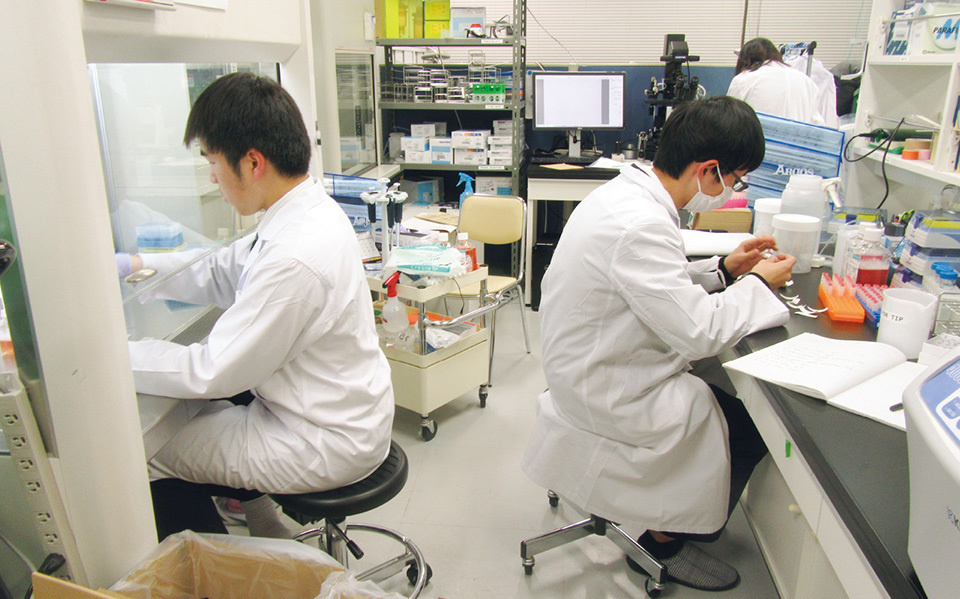
Scientists from all over the world gather together in the Science Park, helping to develop young talent by hiring local high school students for roles such as research assistants.
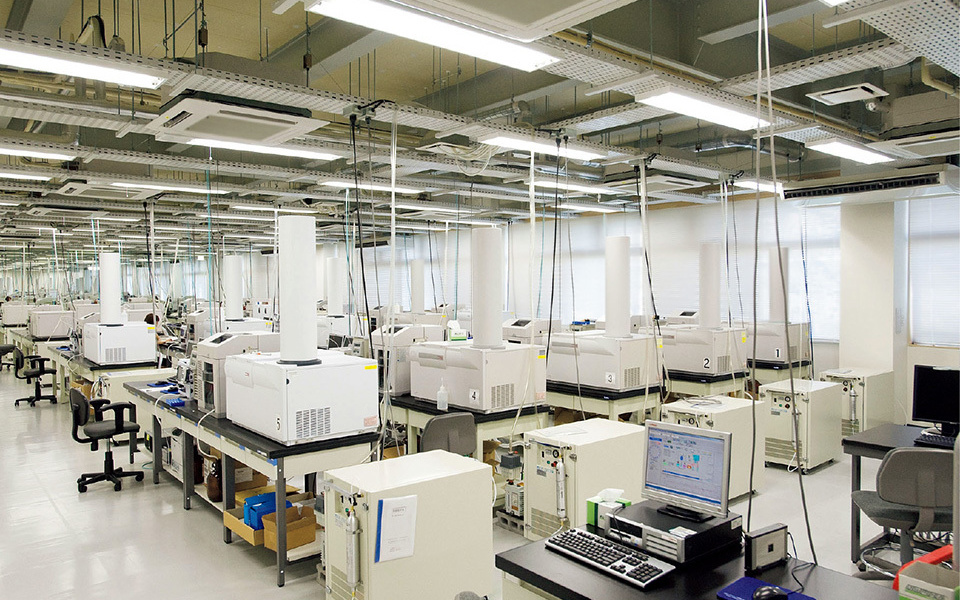
The pride of IAB, the world’s largest group of metabolome analyzers. Metabolome is a general term for metabolites (substances used in metabolism) produced in the living body. IAB aims to elucidate biological phenomena using metabolic data.
One of the bio-venture companies that originated from the IAB and that is based in the Science Park is Metabologenomics, Inc. The firm, which seeks to build a “zero disease” society, is researching people’s stools (excrement). As the stool contains the genes of gut microbiota and metabolites, analysis of stool samples and evaluation of the intestinal environment may lead to a new kind of health care, which, in accordance with the gut environment of each individual, can provide stratified treatment and disease prevention. The company’s president and CEO, Dr. FUKUDA Shinji, remarks, “We are grateful to be able to carry out R&D in such a rich and diverse place. Creating the world’s leading industries here and producing definite achievements would be our way to return the favor to Tsuruoka City.”
In 2018, a new hotel and an indoor playground for children were opened in the park to create attractive spots within the city where local people can interact. Making that happen was Yamagata Design Co., Ltd., another venture company emerging from the Science Park. The firm is involved in a range of projects based on the conviction that anyone—including those from the rest of Japan and elsewhere—can rejuvenate the region by laying down roots and building a place to live with their own hands.
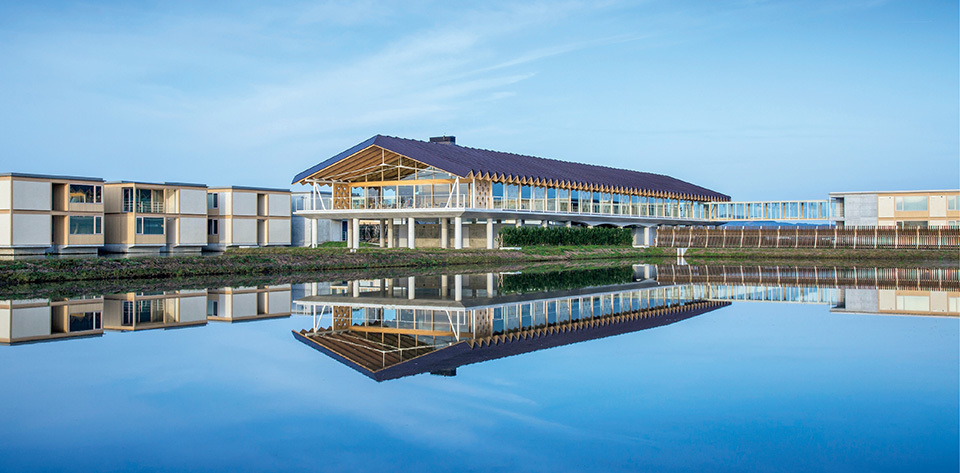
The Shonai Hotel Suiden Terrasse, built from wood, was designed by the prominent Japanese architect BAN Shigeru. Suiden means paddy, or rice field. The hotel, built to look as if it is floating amidst rice paddies, is a new attraction that adds to the appeal of Tsuruoka City.
The Tsuruoka Science Park continues to grow today, bringing abundant economic benefits to the region with more jobs, developments in human resources, and an increase in people who are continuously involved in the area in various ways, including through research, business, and tourism. The park also brings with it a change in people’s perceptions, encouraging greater interest in the sciences and pride in the local community, fostering the very people who will be responsible for the city in years to come. Look forward to a brilliant future for Tsuruoka City, where serene rice paddies and cutting-edge biotech sit side-by-side.

































